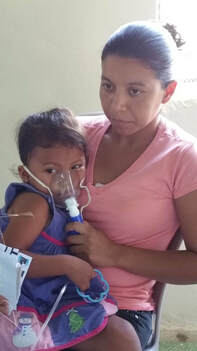We are currently building our team for another medical mission trip to Honduras, from February 3rd-10th, 2024.
If you're interested in going on the trip, or supporting the team, please click here for details!
If you're interested in going on the trip, or supporting the team, please click here for details!

Availability of women's health care in Honduras is very poor. With approximately half of the population living in rural areas, data on women's health screenings for cervical and breast cancer is limited. The most recent estimates suggest that only about 1 in 4 women in Honduras are receiving recommended screenings for cervical cancer, and cervical cancer remains one of the most common cancer killers of women in Honduras. Cervical and breast cancer alone account for about one quarter of all cancer deaths in Honduran women.
A major limiting factor for women receiving their screenings is simply access to care. While women's health centers ("cytology clinics") exist in many major cities, these are typically private health care clinics, and most women cannot afford to visit them. Rural areas are usually underserved, and mammograms are not generally available to the Honduran public. Wealthier women may be able to go to private clinics, but the vast majority of Honduran women are living in poverty, and are forced to go without these important screenings.
One of our ongoing goals in Honduras is to help reduce the burden of cervical cancer. In June of 2019, we began a program to screen and treat women for cervical cancer. Since beginning this program we have screened hundreds of women and performed over a dozen LEEP procedures to remove potential cancers!
In the future, we hope to help provide increased screenings for breast cancer as well, including working to bring mammography to the general public as part of our longer-term plan.
Here's what we need to make this even more successful:
- Approximately $2,000 to construct portable privacy rooms for the screening exams and the procedures - this will also allow us to purchase the tools needed for cleaning and maintaining our equipment
- Additional funding for necessary medications specific to women's health, including birth control and prenatal vitamins
For example: women who have had the LEEP procedure require 6 months of birth control to prevent pregnancy immediately after the procedure and limit complications with future pregnancies - Providers who are trained in cervical exams, and especially additional providers who are trained in LEEP procedures
If you are interested in helping us with any of these needs, or donating toward our Women's Health Program, please click this link and fill out the contact form, and one of our volunteers will reach out to you soon. Thank you so much!
Women's Health Contact Form